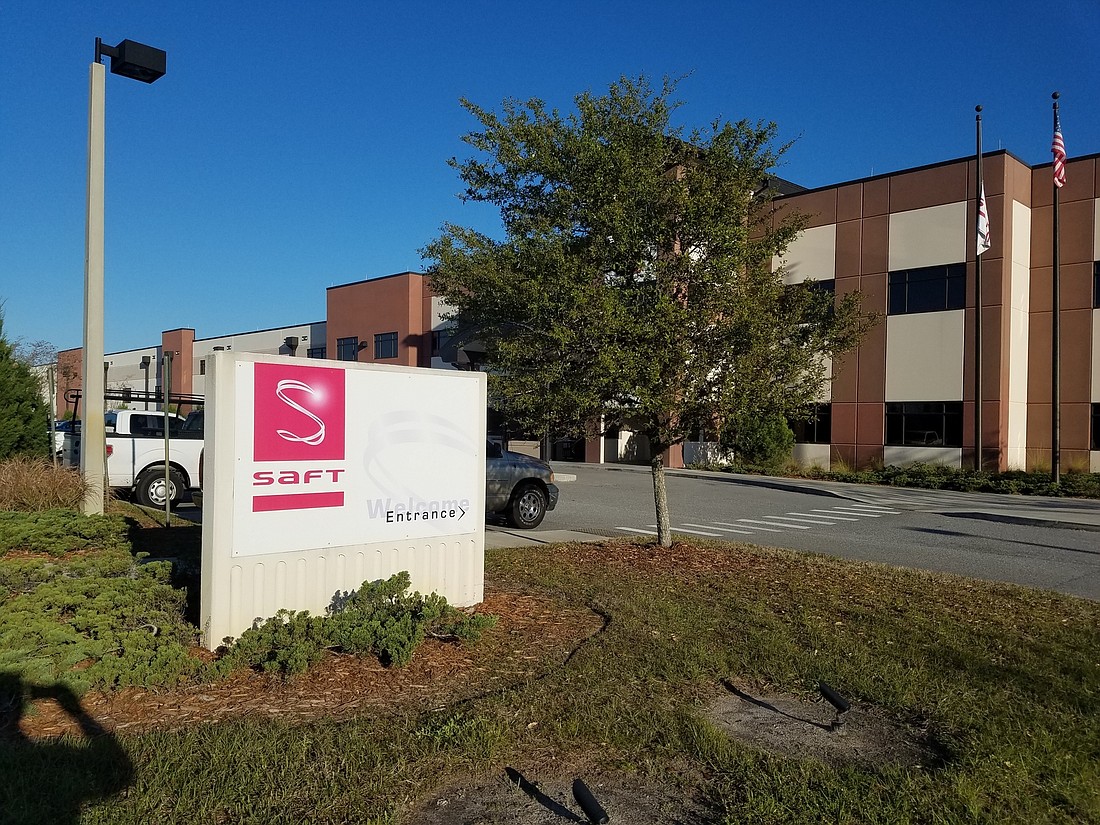
Lithium-ion battery manufacturer Saft America Inc. says it will cut 63 jobs at its West Jacksonville factory by the end of 2019.
A spokesperson for Saft confirmed the job losses in an email Wednesday and said the company’s Jacksonville facility has been unprofitable and underutilized.
Saft says it plans to restructure operations at its 235,000-square-foot Jacksonville plant to focus on the company’s more profitable sectors — mobility, energy storage and rail assembly for U.S. customers.
“The restructuring will have a short-term impact in terms of jobs with 35 positions made redundant immediately and 28 more in late 2019,” said Lisa Harlow, a senior account executive with Clapp Communications that represents Saft.
Saft didn’t say how many employees work at the plant. In June, the factory had 149 full-time workers.
The company plans to offer severance packages and available jobs at Saft’s other U.S. businesses.
Brian Hughes, Mayor Lenny Curry’s chief of staff, said Saft officials notified the city’s Office of Economic Development about the workforce reductions.
The job cuts mean that city officials will again be considering adjustments to Saft’s remaining economic incentives.
The city approved $5.3 million in incentives for Saft in 2009 with a promise from the manufacturer to create 279 full-time jobs by the end of 2017.
Saft hired only 149 full-time workers and reached a deal with the city in June to extend its job target deadline to December. The city also penalized Saft $25,000.
Hughes said Wednesday the city is waiting on certain “data points” from the battery manufacturer before any adjustments or reductions to the remaining city incentives.
As of Wednesday, Hughes said OED was waiting for clarification from Saft about the number of jobs impacted.
A subsidiary of Paris-based Saft Groupe S.A, the company developed a $26.2 million plant at Cecil Commerce Center on 12 acres at 13575 Waterworks St. in 2011.
Saft also received $14.9 million in state financial incentives and was awarded $95.5 million in federal stimulus from the American Recovery and Reinvestment Act to build the plant at the height of the 2008 Great Recession.